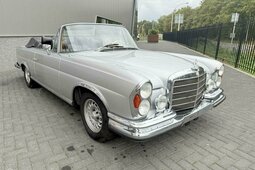How much is your car worth? Being able to sell your old car for a good price is important because its resale value can potentially shoulder the majority of the funds you need for a new car.
The resale market can be tricky, especially if you’re uncertain about the resale value of your car. Pricing it too high will make it harder to find interested buyers while setting the price too low would mean taking an unnecessary loss.
To avoid this, it’s important to arrive at a fair asking price.
How to Calculate Your Car’s Value in Cash?
There are many ways to calculate your car’s cash value. Some methods involve calculating its original on the road price and residual value, computing its monthly depreciation, depreciation per kilometer, finding its current value, and mileage-based depreciation.
In the following section, we share how these methods work.
Method 1: Finding Original On the Road Price and Residual Value After 10 Years
Residual value is the amount of money you’ll be able to recover by selling the car. Generally, it’s assumed that your vehicle has reached the end of its life and is no longer in working condition. The residual value of an asset can help you determine the value of an asset after a certain time, say 10 years.
Method 2: Calculating Per Month Depreciation
On average, vehicles lose 1% of their market value each month. To estimate how much value your car has lost over the months, subtract the car's current market value from its purchase price.
Before you divide the total by the number of years you’ve used your vehicle, remember to subtract sales taxes and additional fees from the total.
Method 3: Calculating Per Kilometer Depreciation
To calculate the depreciation per kilometer, you should be familiar with the total number of kilometers your car can cover during its lifespan.
The amount of depreciation per kilometer will be a sum of the total cost of an asset minus the scrap value of an asset divided by the total life of an asset (in kilometers).
Method 4: Getting Current Value
The market value of your car will not remain constant throughout the years. It will depreciate over time mainly because there have been major changes in its condition from the time of purchase.
The current value of your car will be based on the make, model, year, trim, kilometers driven, current condition, etc. Using this method, no two cars of the same model will have the same current value.
Method 5: Making Adjustments for Mileage
When it comes to mileage adjustments, statistical models are put to use. They make it easy to determine the impact of mileage on the price of a given vehicle based on its characteristics.
Generally, cars with higher mileage have lower resale values since their mileages indicate that they’ve gone through significant wear and tear.
There you have it — five different ways for determining how much you may be able to resell your car for. Calculating your car’s cash value can be a long process, especially if it’s your first time.
An easier way to check your car’s current value is by getting in touch with an auto insurance company like 4 Auto Insurance Quote. They can help you determine your car’s actual cash value and help ensure you receive fair compensation in case your vehicle is damaged or destroyed. You can easily get more information from their website or call them at (888) 616 2038.
Factors That Can Affect Your Car’s Value
If you’re intent on selling your car, you need to be familiar with the many factors that can affect your car’s valuation. Mainly:
- The trade-in value of your car. Most of the time, it’s comparatively lower than the price you can get from selling your vehicle directly to the buyer.
- The car model and variant. Some cars offer better returns than others. They may not hold much value in the wholesale market, but for a buyer who understands its worth, it can be worth a whole lot.
- The car's condition. If your car is in great shape, you may be able to get a better resale value.
- The odometer reading. The less the car is used, the higher the value.
- The year it was manufactured. The older your car is, the less attractive it becomes. Even if your car’s condition is near perfect, if it’s aged on paper, you can have a tougher time finding buyers.
Information Needed to Estimate Your Car’s Worth
To calculate the value of your car, you’ll have to take a couple of factors into consideration:
- What is the make, model, and year?
- How good or bad is the interior, exterior, and mechanical condition?
- What’s the mileage?
- What are the features? Have you upgraded anything? If so, how does that increase its market value?
- What’s the demand for your vehicle in your local market?
These are some of the questions you need to ask yourself before putting your vehicle up for sale. The more you know about your vehicle, the better you’ll be able to calculate its value and your negotiations will benefit from it.
Frequently Asked Questions
How Does Used Car Valuation Impact the Insurance of My Car?
A car insurance premium is calculated based on the value of your car. If you underprice your car, your claims may be lower should your car be stolen or sustain damage. If you overprice it, you may have to pay a higher car insurance premium. This is why you should always declare fair valuation.
Is Buying Used Cars a Good Idea?
Buying used cars is a great way to make a good purchase without boring a hole in your bank account. As brands have a steady flow of new models, there’s a good chance you’ll be able to purchase a comparatively newer model at a significantly lower price than its fair market value.
Can I Trade-in My Car if It Is Not Paid Off?
Even if you still owe money on your car loan, you can still trade your car in. Most dealers will pay off the remaining loan balance and obtain the vehicle’s title directly from the lender.
How Does a Car's Total Running Affect Its Worth?
The more kilometres a car has, the less it’s worth on the market. Of course, this is not the only determining factor. Other factors like your car’s condition, service history, model, demand, etc. play pivotal roles too.
Final Thoughts
We hope that reading this article has put you in a good position to determine the fair asking price for your car. Remember, you want to avoid a price that’s too high or too low so you can pay the right insurance premiums and be compensated accordingly in case you need to file any claims.
---
Find your dream car among our Car Categories!
 © Dyler
© Dyler







